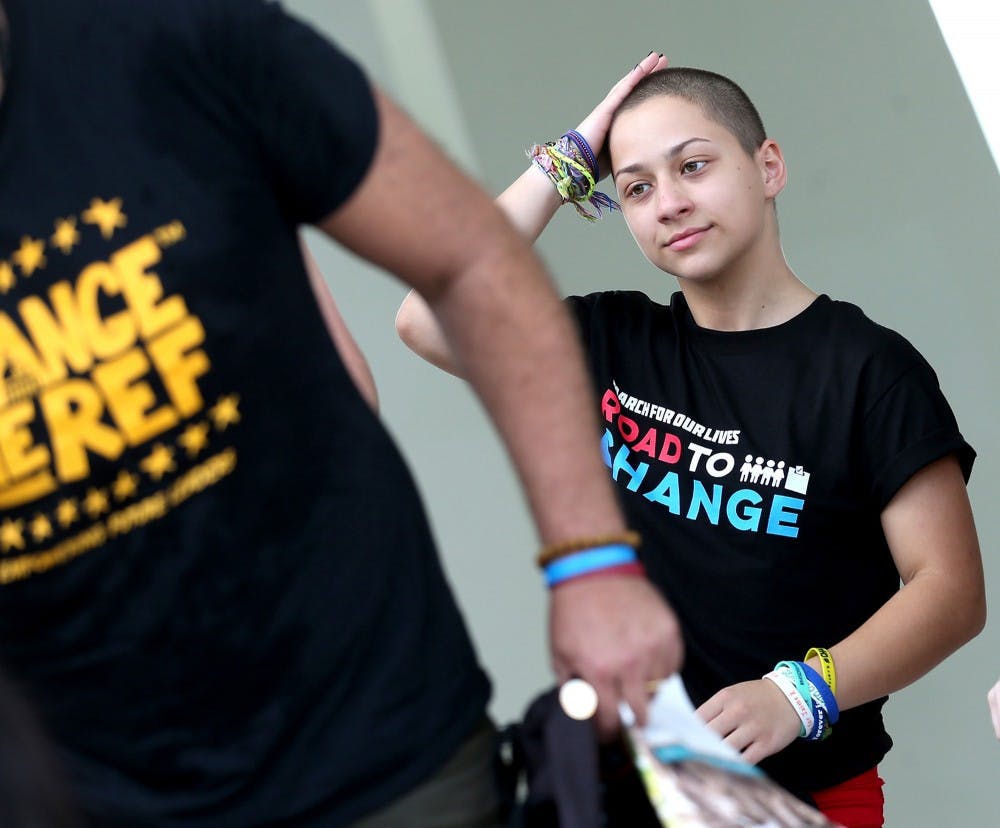Black lives matter. Protect kids, not guns. Hands up, don’t shoot. Fear has no place in schools.
Each of those statements are mantras taken on by two social movement groups that have been formed in the last decade. Although they both are fighting for justice, there is one major difference between the groups: One is led by black people, and the other is led by white people.
Due to society continuously discrediting minorities and their rightful fights for justice and equality, society views black-led social movements and white-led social movements in completely different lights.
While blacks working toward change are viewed as radical and terrorists, whites working for social and political change are “inspiring.”
The Black Lives Matter movement is an international activist network “whose mission is to build local power and to intervene in violence inflicted on black communities by the state and vigilantes," according to its website.
Founded in 2013 by Alicia Garza, Patrisse Cullors and Opal Tometi, this movement was created as a direct result of the stark racial tensions in America after the 2012 murder of unarmed 17-year-old Trayvon Martin.
Feb. 26 marked seven years since his murder.
The movement spread like wildfire in the following years as unarmed black men, such as Eric Garner and Mike Brown, were killed in the streets.
Protesters took to the streets full of frustration and ready to fight against police brutality and murders of innocent black people. But society was not fully receptive to this “radical movement.”
Many began to refer to Black Lives Matter as a violent, terrorist organization.
People said it was anti-white and as a result the pointless “All Lives Matter” movement was created.
In regard to the All Lives Matter movement, Tyler Huckabee of Relevant magazine said, “It’s not that what they’re saying isn’t true. It’s just that it’s unhelpful. It’s an attempt to erase an actual crisis under the guise of being fair.”
White cultural icons were deeming the movement dangerous.
It was not just individuals, but also whole government entities discriminating against the movement. “Black Identity Extremist” was a word created by the FBI to halt African-American activism.
In an FBI intelligence assessment, Black Lives Matter protesters were indirectly referred to as “armed members of the African American community who express anti-government sentiment.”
Then came March for our Lives in early 2018 after the devastating shooting at Marjory Stoneman Douglas High School that left 17 dead. It was the deadliest high school mass shooting in American history.
Stoneman Douglas students worked diligently to organize this event that swiftly became a nation-wide movement, regarding stricter gun legislation.
Parkland, the town where the shooting took place, is an affluent suburb with citizens of a high socioeconomic status. Additionally, it is the 14th highest-earning city in the nation.
The students have been considered heroes and patriarchs in regard to young people taking action. Only 4 days after the shooting, students were on CNN announcing the date for a nationwide march against gun violence.
I am not discrediting these students in any way. I admire their bravery in tackling this issue in a national spotlight.
But I am discrediting the polar opposite views society has on two social groups who are both fighting for the right to live.
For example, when school shootings are on the news, they overwhelmingly are portrayed as affecting more affluent, and quite frankly, white communities.
As a result, people rush to support them, because innocent white people are being harmed. If privileged people or their stability is tarnished, Americans want change.
Students are given the opportunity to be on national television days after the devastation, but when black people who have a history of oppression demand equality, they are terrorists. They are anti-white. They are a disgrace.
This is the narrative seen too often in the media.
Everyone deserves equality and a voice.
But there is one thing society tends to forget: black voices matter too.






